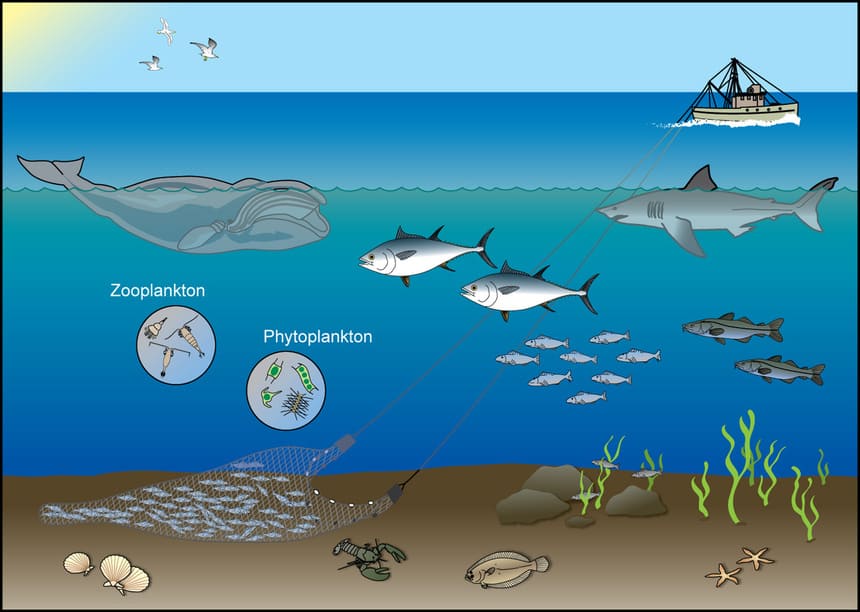
South African Fisheries Administration: A Case Report on the Use of Ecosystem-Based Concepts and Research
Title
South African Fisheries Administration: A Case Report on the Use of Ecosystem-Based Concepts and Research
Author
1. Baba Bekezulu,
Student, University of Cape Town, Cape Town, South Africa
2. Lyle Afrika,
Lecturer, University of Cape Town, Cape Town, South Africa, South Africa
Abstract
Problems including overfishing, bycatch, habitat loss, and global warming are wreaking havoc on South Africa's marine ecology. To help ecosystem-based management (EBM) tackle these problems, this case study looks at how models and analysis were used. Among the essential models included are ecosystem models for forecasting more general ecological effects, spatial analysis for safeguarding habitats, and socio-economic models for gauging the impact of management choices on fishing communities. These models are used to determine sustainable harvest levels. One fishery that has successfully used these methods is South African hake fishing. Sustainable fisheries, less bycatch, habitat protection, and adaptability to environmental changes are some of EBM's advantages highlighted in the paper. Data availability, model complexity, and stakeholder participation are other issues it tackles. According to the research, South Africa's fisheries and marine ecosystems may be protected if EBM is used with models and analyses.
Keywords
Conclusion
Models and analysis offer valuable tools to bridge the gap between fisheries management challenges and the implementation of EBM in South Africa. By integrating these tools into a comprehensive EBM framework, South Africa can ensure the long-term sustainability of its fisheries and the well-being of its marine ecosystems.
Author Contrubution
The author confirms sole responsibility for the following: study conception and design, data collection, analysis and interpretation of results, and manuscript preparation.
Funding
The authors did not receive any specific grants from funding agencies in the public, commercial, or non-profit sectors for the research, authorship, and/or publication of this article.
Conflict of Interest
All authors declare that they have no conflicts of interest.
Data Sharing Statement
Not applicable
Software And Tools Use
Not applicable
Acknowledgements
I thank the following individuals for their expertise and assistance in all aspects of our study and for their help in writing the manuscript. I am also grateful for the insightful comments given by anonymous peer reviewers. Everyone's generosity and expertise have improved this study in myriad ways and saved me from many errors.
Corresponding Author
Baba Bekezulu
University of Cape Town, Cape Town, Student, South Africa
Lyle Afrika
University of Cape Town, Cape Town, South Africa, Lecturer, South Africa
Copyright
Copyright: ©2026 Corresponding Author. This is an open access article distributed under the terms of the Creative Commons Attribution License , which permits unrestricted use, distribution, and reproduction in any medium, provided the original author and source are credited.
Bekezulu, Baba, and Afrika, Lyle. “South African Fisheries Administration: A Case Report on the Use of Ecosystem-Based Concepts and Research.” Scientific Research Journal of Agriculture and Veterinary Science, vol. 2, no. 1, 2024, pp. 28-30, https://isrdo.org/journal/SRJAV/currentissue/south-african-fisheries-administration-a-case-report-on-the-use-of-ecosystem-based-concepts-and-research
Bekezulu, B., & Afrika, L. (2024). South African Fisheries Administration: A Case Report on the Use of Ecosystem-Based Concepts and Research. Scientific Research Journal of Agriculture and Veterinary Science, 2(1), 28-30. https://isrdo.org/journal/SRJAV/currentissue/south-african-fisheries-administration-a-case-report-on-the-use-of-ecosystem-based-concepts-and-research
Bekezulu Baba and Afrika Lyle, South African Fisheries Administration: A Case Report on the Use of Ecosystem-Based Concepts and Research, Scientific Research Journal of Agriculture and Veterinary Science 2, no. 1(2024): 28-30, https://isrdo.org/journal/SRJAV/currentissue/south-african-fisheries-administration-a-case-report-on-the-use-of-ecosystem-based-concepts-and-research
1035
Total words496
Unique Words54
Sentence18.462962962963
Avg Sentence Length0.27230526161082
Subjectivity0.04216784244562
PolarityText Statistics
Viewed / Downloads
Total article views: 239 (including HTML, PDF, and XML)| HTML | XML | Total | |
|---|---|---|---|
| 140 | 43 | 56 | 239 |
Viewed (geographical distribution)
Thereof 239 with geography defined and 0 with unknown origin.